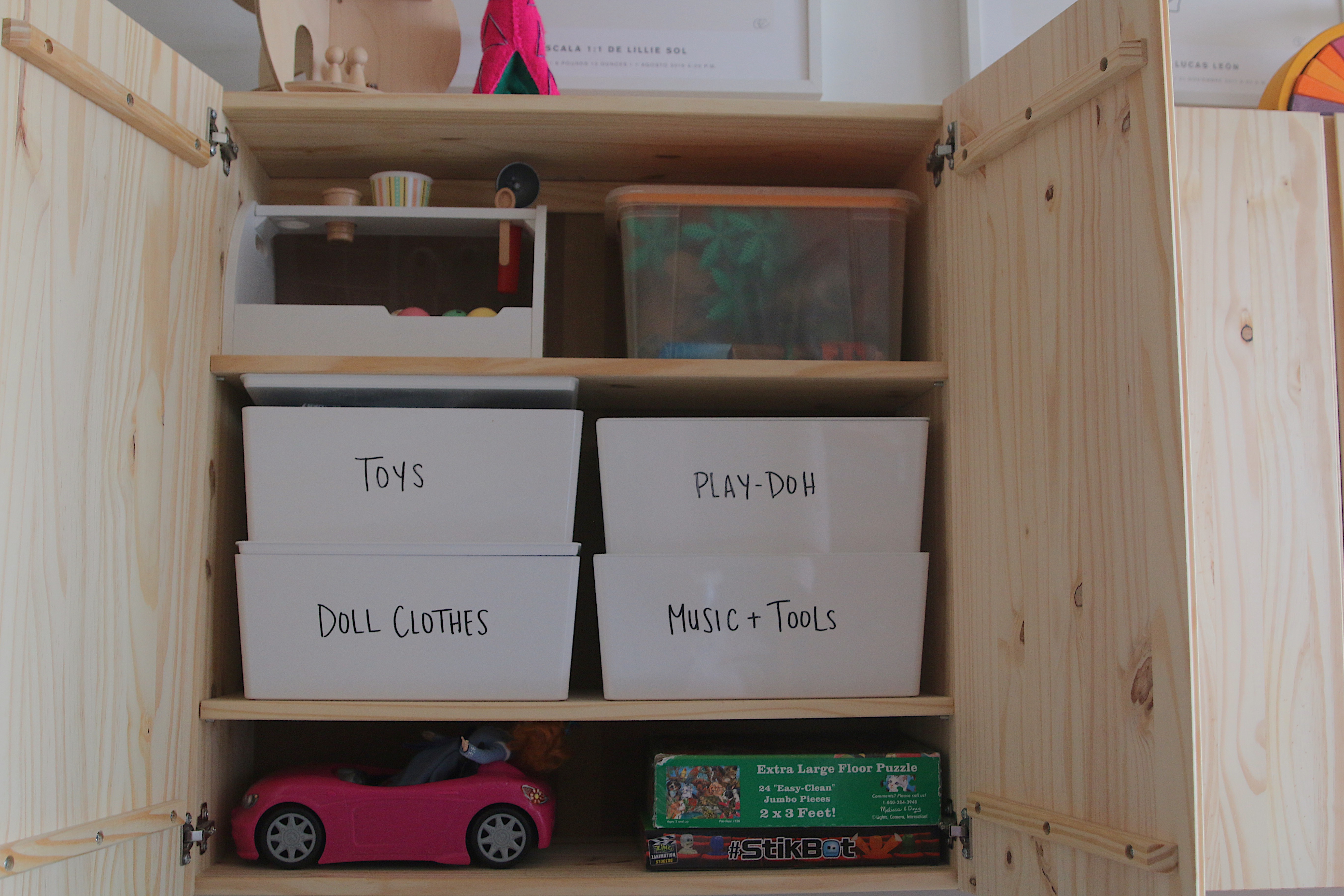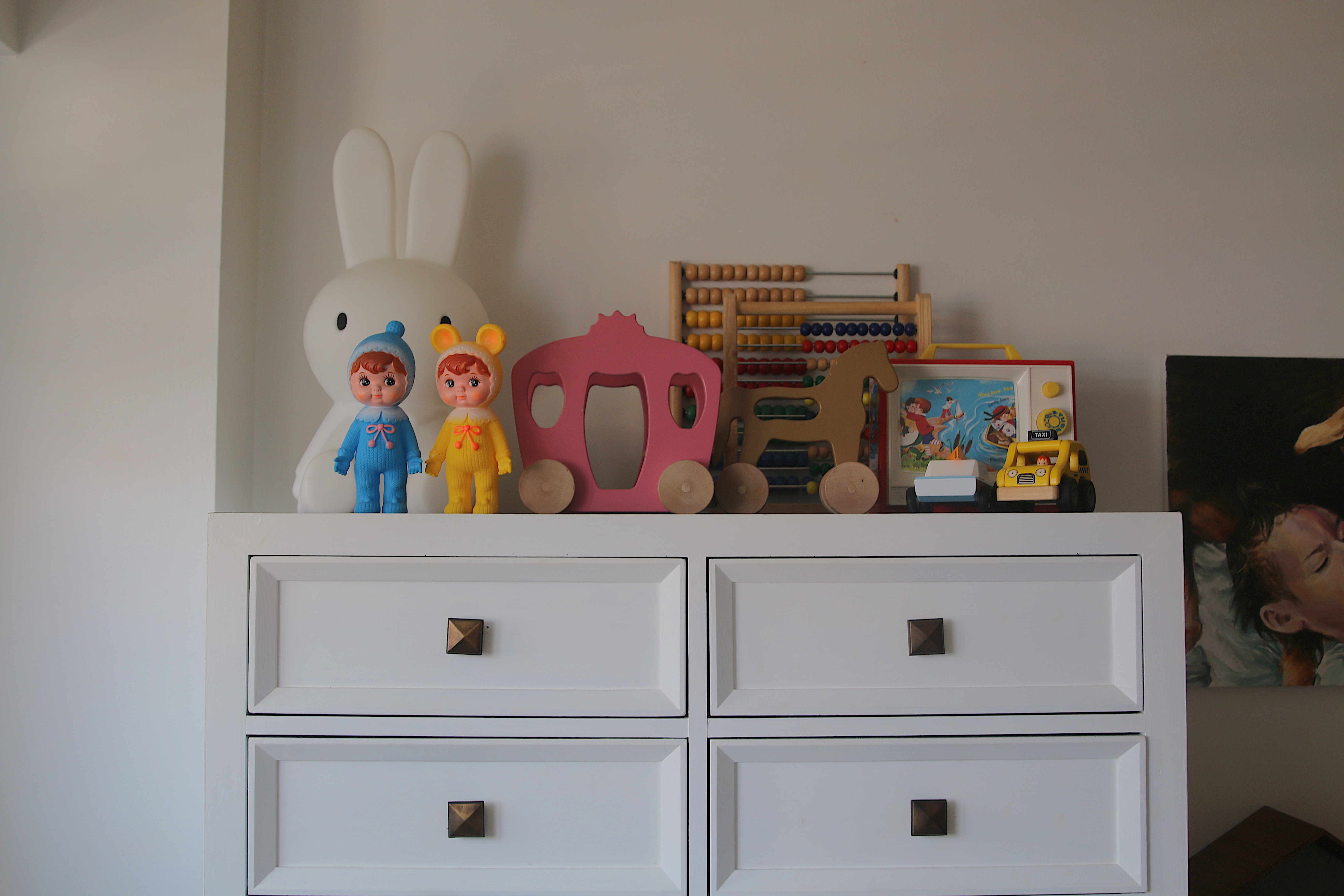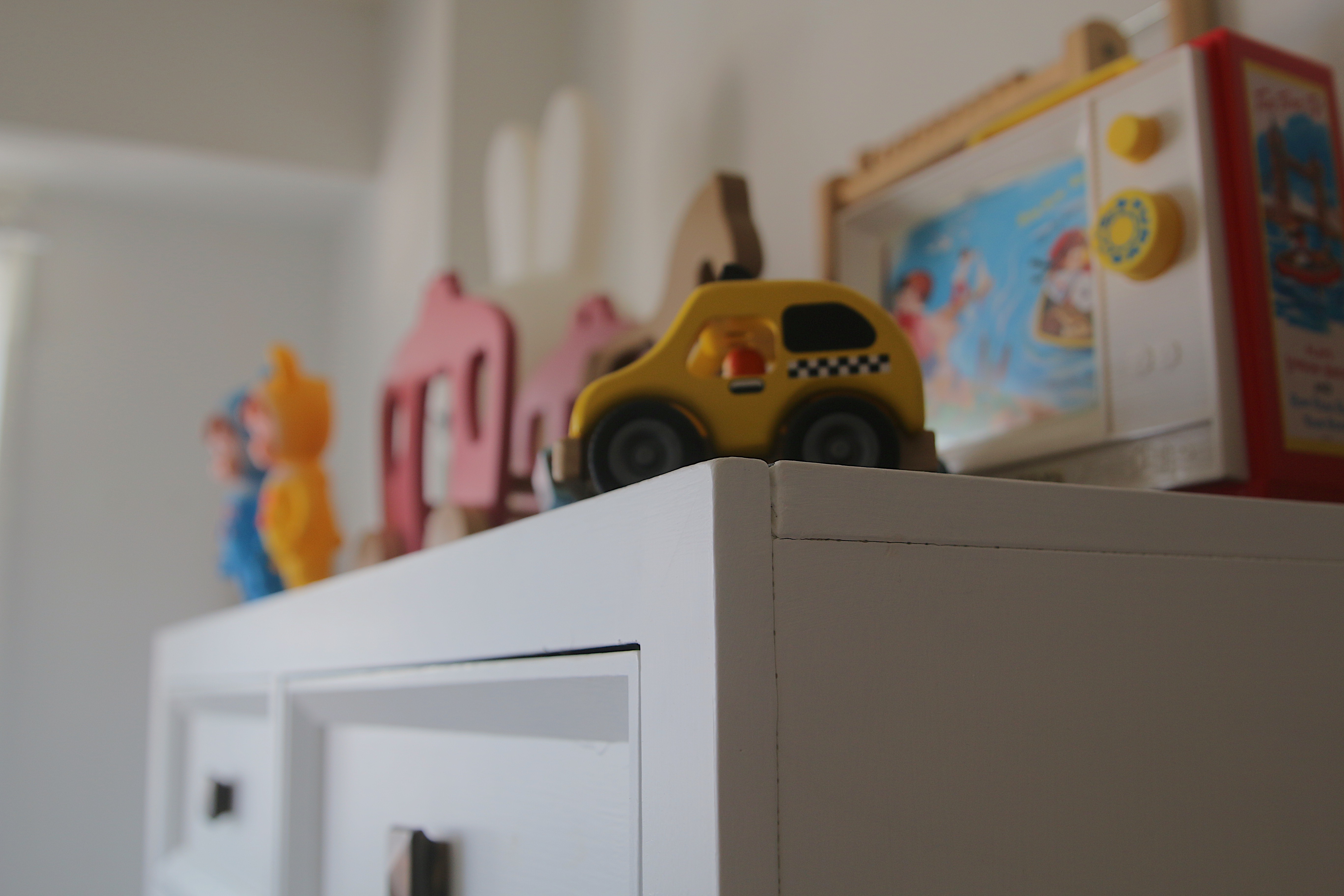Part 2 with Appleshine (first post here)! After hours of Amelia and Marla’s hard work, Lucas and Lillie’s room is finally organized!! Every item has a home and the placement of toys makes sense (toys they play with more frequently, etc.). They not only organized the toys, but rearranged them in different spots around the room in ways I had never thought of. They helped me with art placement and curated the most beautiful little nooks and displays. The kids and I are in love and couldn’t be happier!

Back in June (seems like a lifetime ago already!), I had the absolute pleasure of working with Amelia Meena – founder of Appleshine, and her assistant Marla, on getting the kids room in order. Appleshine Organization + Design is a full service firm that cultivates an organized lifestyle for busy New Yorkers (hello!!).
The first day they came over the kids room was interesting to say the least. We were approaching the end of the school year and stuff was everywhere. Every last corner was occupied, dolls strewn about, baskets no longer made any sense. Fun times for me when it came to cleaning. After a strategic plan and the purchase of a few new organizing tools, they got to work a week later. After almost 7 hours the kids had an entirely new room. I can’t wait to share photos and more information on what they did and how I am so ready for back to school because I have been implementing what they taught me all Summer.
Around the time they got started I asked if any of my followers over on Instagram had any specific questions on cleaning/organization that they would like answered. I hope many of you find the below (answered directly by Amelia!) helpful. Stay tuned for PT 2 of this post next week where I will share the kids finished room.
What are your tips on getting rid of/storing sentimental items (a special toy, etc.)?
– Designate a Capacity Limit: a box / container / folder the signifies your maximum amount of space for any one category
– Remember – your child will not want to sort through 50 boxes of their baby stuff as an adult; it’s just too overwhelming and, truthfully, they will likely not be as attached as you are. So be okay with keeping a small amount, knowing that one or two boxes of very special items will bring more joy than multiple boxes left unopened and waiting for a whole weekend to go through them.
What are your tips for a shared nursery for city dwellers? Any space saving tips, must have furniture items, storage ideas?
Tips on getting rid of/donating toys? What do you do when interests change but they might still want to play/hang on to older toys?
Depending on the kid’s age, this could be a great time to teach them about organization through donation / sharing. Explain that they have plenty and others may not have as much so they can give away some of their toys to help other kids. And give them a numbered goal, ie – “Here are 15 stuffed animals, can you tell me which ones are your favorite? (Child picks 5-11 toys). Great! From these ~10 favorites, let’s keep 6 of them.” This technique empowers the child and lets them know they have permission to declare what they like or don’t like.
Best furniture for small spaces that may also serve a dual function?
– IKEA Kallax is a great piece: affordable, has cute bin options, multifunctions as toy storage, bookcase, clothing storage, etc
Any recommendations on child safe shelving and how to store toys on shelves?
– Always affix bookshelves or dressers to the wall to prevent tipping over
Do you have any recommendations or go-to donation centers/sites for toys/children’s items?
– A Family (or Women / Children) Homeless Shelter is a GREAT place to take donations, as you’ll know they’ll go straight to use rather than to a distribution center.
Any tips on how to control the influx of toys that come in during birthdays and holidays?
– Ask for Experience Gifts rather than physical items. (Ie – horseback riding class, a swim membership, a museum membership, etc)
A big thank you to Appleshine for making this possible!

